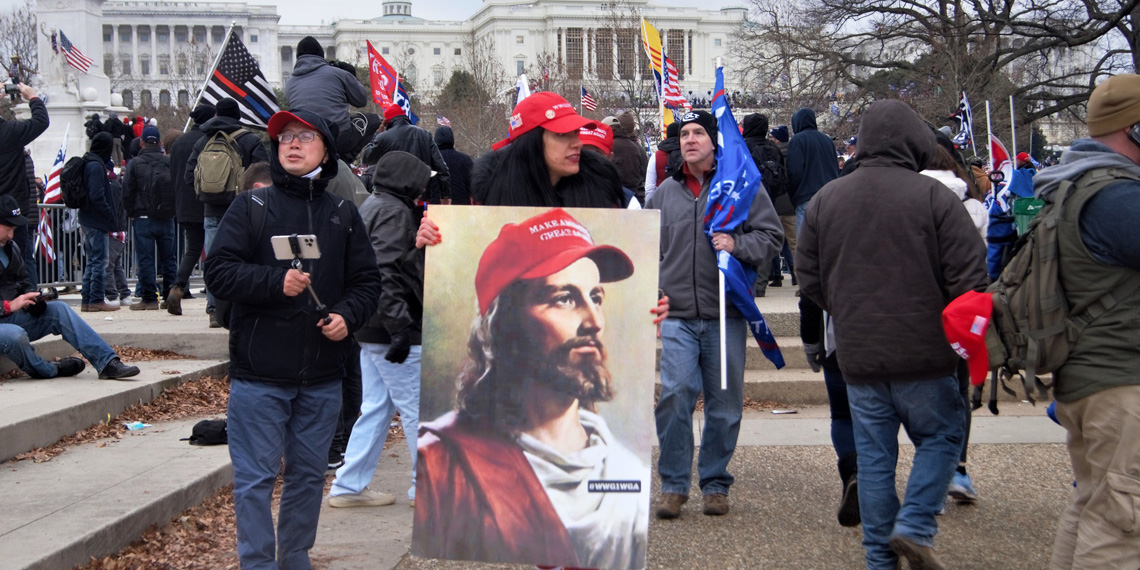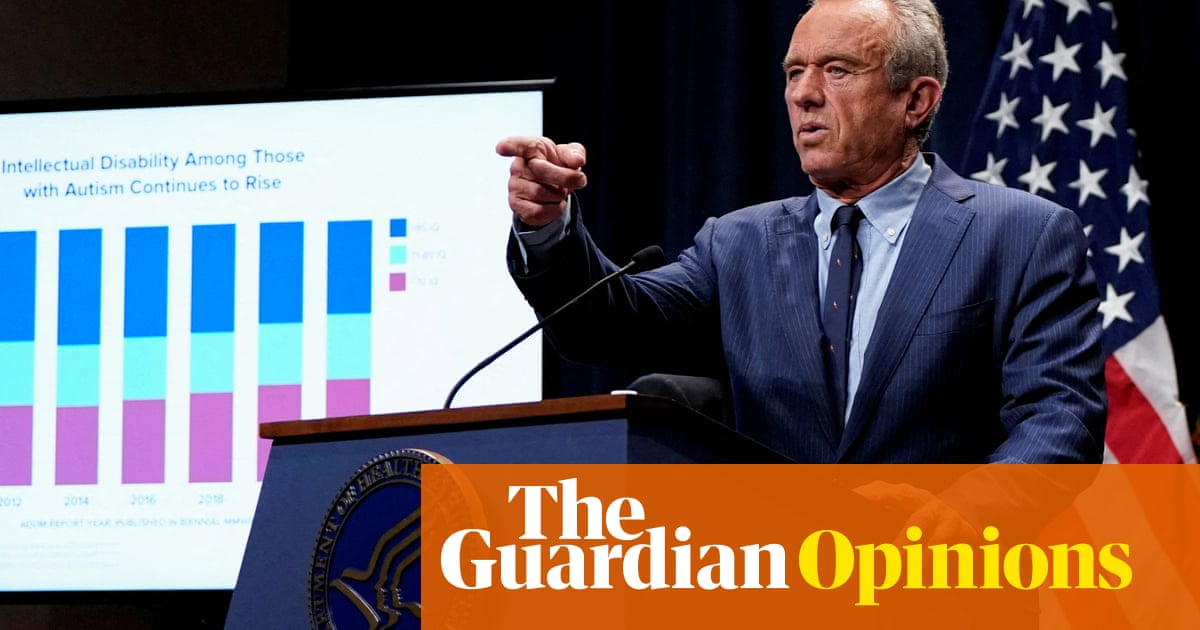Christian nationalism and biblical literalism independently predict conspiracy thinking, study finds

A new study has found that both Christian nationalism and biblical literalism are independently associated with a greater tendency to believe in conspiracy theories. When people believed in both Christian nationalism and biblical literalism, their distrust of government officials increased significantly. The findings, published in the Journal for the Scientific Study of Religion, provide insight into the sociocultural factors that contribute to the spread and persistence of conspiracy beliefs in certain populations.
The researchers were motivated by the growing concern over the harmful effects of conspiracy theories, such as the spread of misinformation about the COVID-19 vaccine and the belief in the stolen election narrative, which led to the January 6 insurrection at the United States Capitol. They sought to better understand the factors that contribute to the endorsement of conspiracy theories within specific religious and ideological contexts.
Biblical literalism refers to an approach to interpreting religious texts, such as the Bible, in a strictly literal and word-for-word manner. It involves the belief that the Bible is an accurate historical and scientific account, and every passage should be understood as directly and precisely true.
Christian nationalism, on the other hand, is a political ideology that combines Christianity with a sense of national identity and seeks to establish a close relationship between religion and the state. It views the nation as fundamentally rooted in Christian values and principles, and it often advocates for policies and laws based on those beliefs.
“Like many, we were deeply affected by the sharp divisions, fueled by conspiracy theories, that arose around COVID-19 and the 2020 presidential election,” explained study author Brooklyn Evann Walker, an instructor of political science at Hutchinson Community College.
“We noted that conspiracy theories related to both COVID-19 and the Big Lie gained traction in religious communities that tended towards biblical literalism and Christian nationalism, leading us to wonder if either of these two aspects of American religion (biblical literalism and Christian nationalism) were related to a broader tendency for Americans to think in conspiratorial ways.”
To conduct the study, the researchers used data from the 2019 wave of the Chapman University Survey of American Fears (CSAF), which included measures of Christian nationalism, biblical literalism, and various demographic variables. The survey was administered online to a nationally representative sample of American adults, resulting in a final sample size of 1,219.
The survey asked respondents to indicate their level of agreement or disagreement with the idea that the government is concealing information about different events. These events included conspiracy theories related to government cover-ups of extraterrestrial life, the belief that the 9/11 attacks were not solely carried out by terrorists but involved government involvement or a cover-up, belief in a secretive group or organization that controls world events (e.g. the Illuminati), and more.
The measure of conspiracy thinking including both popularized conspiracy theories as well as one contrived event, allowing the researchers to assess respondents’ adherence to a generalized conspiracy mindset rather than just specific theories.
The study found that there is a positive association between Christian nationalism and belief in conspiracy theories. In other words, individuals who held stronger Christian nationalist beliefs (e.g. “The federal government should declare the United States a Christian nation”) were more likely to endorse conspiracy thinking. This relationship held even when considering the fictional conspiratorial event introduced in the survey, indicating a general propensity for conspiracy thinking.
Furthermore, the study suggested that biblical literalism plays a role in shaping conspiracy thinking. Those who adhered to a literal interpretation of the Bible were more likely to adopt conspiracy thinking, and biblical literalism was found to amplify the effect of Christian nationalism on conspiracy thinking. This suggests that the elevation of religious authority over scientific sources and an anti-elitist sentiment within the Christian nationalist identity contribute to the adoption of conspiracy theories.
“Christian nationalism links being Christian to being American. In the view of many Christian nationalists, this linkage is threatened by secularization and other social changes. Biblical literalism is the belief that each word in the Bible should be accepted as God’s word spoken directly to readers, not to be filtered through religious elites,” Walker told PsyPost.
“Using survey data, we find that the sense of a threatened nation inherent in Christian nationalism and the anti-elite tendencies in biblical literalism amplify conspiracy thinking, and that the two have especially strong effects when they occur together. We conclude that Christian nationalist and biblical literalist support of COVID-19 and the 2020 election conspiracy theories are not a one-off; Christian nationalists and biblical literalists are likely to buy into future conspiracy theories, too.”
Importantly, the findings held even after controlling for demographic variables such as race, gender, age, education, and political leanings. The researchers found that conservative ideology was correlated with conspiracy thinking, while attending religious services had a negative relationship, possibly due to the social capital and trust-building aspects of religious engagement.
“We were surprised at the effect sizes we observed. When occurring together, biblical literalism and Christian nationalism had a much stronger effect than well-established predictors of conspiracy thinking, like education,” Walker said. “It’s also important not to lump all religious activity together — religious service attendance was consistently associated with less conspiracy thinking.”
However, the researchers acknowledge some limitations in their study. They were not able to account for certain psychological factors related to how people perceive and interpret information, such as the need to find patterns among events. They also note that their measure of conspiracy thinking focused on specific conspiracy beliefs and may not capture the full range of conspiracy thinking.
“We measured conspiracy thinking by respondents’ agreement with eight different conspiracy theories,” Walker explained. “Social scientists have developed other measures of conspiracy thinking that don’t rely on respondents’ knowledge of specific conspiracy theories. Replicating our models with one of these more general measures would certainly strengthen the findings.”
“Also, we can’t stop with diagnosing the problem — we need to think deeply about how Christian nationalists and biblical literalists might become less susceptible to conspiracy thinking.”
The study, “Christ, Country, and Conspiracies? Christian Nationalism, Biblical Literalism, and Belief in Conspiracy Theories“, was authored by Brooklyn Walker and Abigail Vegter.


